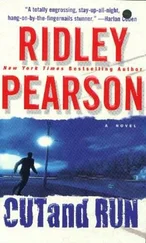Ridley Pearson - Beyond Recognition
Здесь есть возможность читать онлайн «Ridley Pearson - Beyond Recognition» весь текст электронной книги совершенно бесплатно (целиком полную версию без сокращений). В некоторых случаях можно слушать аудио, скачать через торрент в формате fb2 и присутствует краткое содержание. Жанр: Триллер, на английском языке. Описание произведения, (предисловие) а так же отзывы посетителей доступны на портале библиотеки ЛибКат.
- Название:Beyond Recognition
- Автор:
- Жанр:
- Год:неизвестен
- ISBN:нет данных
- Рейтинг книги:5 / 5. Голосов: 1
-
Избранное:Добавить в избранное
- Отзывы:
-
Ваша оценка:
- 100
- 1
- 2
- 3
- 4
- 5
Beyond Recognition: краткое содержание, описание и аннотация
Предлагаем к чтению аннотацию, описание, краткое содержание или предисловие (зависит от того, что написал сам автор книги «Beyond Recognition»). Если вы не нашли необходимую информацию о книге — напишите в комментариях, мы постараемся отыскать её.
Beyond Recognition — читать онлайн бесплатно полную книгу (весь текст) целиком
Ниже представлен текст книги, разбитый по страницам. Система сохранения места последней прочитанной страницы, позволяет с удобством читать онлайн бесплатно книгу «Beyond Recognition», без необходимости каждый раз заново искать на чём Вы остановились. Поставьте закладку, и сможете в любой момент перейти на страницу, на которой закончили чтение.
Интервал:
Закладка:
“It’s not the best time,” he answered honestly, aware that he had worked three seven-day weeks in a row. Aware he needed to get back downtown. “This case-”
“Oh, come on,” she complained. “Marina can help you. Besides, you can’t work every weekend. Phil won’t allow that. If he knew the schedule you were pulling he’d throw a fit.” Then she caught on and he winced before she voiced it. “You haven’t filed for the overtime, have you,” she stated incredulously. Liz ran the household budget-being the banker in the family-and Boldt knew he had serious trouble with this discovery: unpaid time at work was time he could be with the kids, or working on the house, or spending time with her. This could provoke a firestorm.
“It isn’t as simple as that. I’m sort of on loan to the fire department. I’m essentially pulling double duty as it is; managing the squad and working these arsons.”
Her expression remained hard. “If you’re expecting violins, forget it. I need this time, Lou. That’s what I’m trying to tell you. If I could do it without Sarah-if I could express enough milk-I’d leave her with you too, but I can’t right now.”
Boldt went over to the sink to pour himself a glass of filtered water and noticed immediately that the view out the window was remarkably cleaner. He noticed this because cleaning the windows was his responsibility and he had let this duty slip, and it seemed inconceivable that Liz had washed them, which meant she had paid to have them washed, and this in turn helped him to understand her independent and somewhat foul mood: If he slacked off on his jobs around the house, she came in behind him and hired them done, and it annoyed her to no end. He asked, “Is it the windows? Is that it? You got them washed, didn’t you? Listen, I meant to.”
“No, it’s not the windows,” she countered.
“You got them washed,” he objected. He could see that they had been washed-and a good job at that. Professional. He even felt a little envious at how good a job it was.
“It was a mistake,” she said, clearly frustrated at his attempt to steer her away from the issue of the overtime pay. “The point is, if you’re not filing for over-”
“Getting the windows washed was a mistake? I don’t think so. They look great to me.” He hoped he might be able to press this toward humor and deflect her anger, because taken together the two added up to real trouble: He wasn’t charging the department for his overtime, and he wasn’t home enough to do his chores, so the overtime pay wasn’t there to cover the added expense of hiring people to pull his weight.
Speaking in a patronizing, condescending way in which she accented every syllable, she told him, “A mistake. The … wrong … house. I did not hire any window washer. You are the window washer. The guy was off by one street. It was a mistake … on … his … part.”
Boldt smelled a scam. “Did he try and charge you for-”
“No. We cleared it up. He packed up, and he took off. He was perfectly nice about it.” She lightened up a little. “In fact,” she said, “he did a pretty good job.”
“Better than that other guy you’ve got,” he said, meaning himself.
She came out of the chair then and, suppressing a slight grin, approached her husband and threw her arms around his neck and drew them close together. He felt like stealing a glance at his watch, but he didn’t. “Why is it I can’t stay mad at you?”
He felt better than he had in ages. He didn’t want to let go. He clasped his arms around her waist and squeezed tightly, and she got the message and squeezed back, and he could feel her breath beneath his ear, and he put his lips to her ear and said, “I miss you.”
“I need this weekend, Lou. I wouldn’t ask if I didn’t.” She added, “Please.”
He felt himself nod, although it wasn’t automatic; it was born of great reluctance and trepidation. He felt some fear along with his love, some suspicion, even some anger. He wanted to keep squeezing until the truth came out of her, but Liz took her time. She needed time to think; he understood this. Her return from the cabin would bring with it a request to talk with him alone. He knew this woman well enough to understand that a change was coming-a decision. The baths were part of it: isolation, a time to think; perhaps that was all they were about. He leaned back and looked at her; he thought her darkly handsome and intelligent-looking. She looked a little tired. Troubled. “You okay?” he asked.
She squinted. That meant don’t ask, so he didn’t push it. A pit of concern burned inside him.
“I’ll take Miles,” he conceded.
She hugged him thanks.
“And I’ll get the rest of the windows.”
She kissed him on the lips. “We’ll talk,” she said.
“I know we will.”
“It’s going to be okay.” She attempted to reassure him, but his years with her contradicted this; her tone of voice belied her message. It was not going to be okay, and this realization terrified him. He forced a smile, but he thought she probably saw it was forced. Their moment of peace was passing. They released their hug.
Boldt headed to the refrigerator and poured himself a glass of milk.
He heard Miles calling from the nearby room. “Da-a-ddy.” It was not a cry of alarm but of longing-the father could easily discern the difference-and it caused a warm stirring in Boldt’s heart. He stopped at the kitchen doorway and turned toward his wife, the first nibble of concern beginning chew on the inside of his chest. “How old?” he asked.
Liz, who had poured the teakettle full of water and headed for the stove, replied, “What are you talking about?”
“How old?” he repeated, this time more strongly.
“What? Who?”
“The window washer,” Boldt answered, and by then his body had seized on the idea, and it infected him, from the center of his chest outward through his shoulders, groin, and into his limbs. He felt this flood of heat like a sudden fever. “ A ladder? ” he barked at his wife, passing along his alarm to her, for her head snapped up disapprovingly, and even to his son, whose nearby cry suddenly raised in pitch and severity.
Her hand trembling, she placed the kettle onto the stovetop, attempting to carry on as usual. She knew that tone of his. She detailed for him: “Midtwenties. Early thirties? Thin.”
“His face?”
“He was up the ladder. His face? I don’t know. I was over by the garage. He wore a sweatshirt up over his head. We said about five words. I went inside, and he was gone. Lou?” She reached down to turn the knob on the front of the gas stove. That knob was suddenly all that Boldt could see-it loomed huge in front of him, occupying his vision: a trigger.
“Don’t touch it!” Boldt shouted loudly.
Liz jumped back. Terror filled her face.
Miles cried out, the fright contagious. “Daddy!”
“Don’t touch anything!” he cautioned. “Don’t move , for that matter.”
“Lou?” she pleaded, anxiety dissolving her.
His mind racing, Boldt hurried outside, into a dark and gripping terror. A window washer. A ladder .
It was dark out, and as he ran down the back steps he headed directly to his car and retrieved the police-issue flashlight from the trunk. He hurried around the side of the house, the glaring white light fanning out across the grass and throwing moving shadows in its wake. Boldt glanced up at the kitchen window and saw Liz, wide-eyed with concern, looking directly out at him. Her expression told him not to bring this sort of thing into her home, her life, onto her children. In all his years of service, no physical threat or trouble had found its way across the threshold of his home. There had been phone calls once-even with the number unlisted-but these had been quickly handled. Never this close.
Читать дальшеИнтервал:
Закладка:
Похожие книги на «Beyond Recognition»
Представляем Вашему вниманию похожие книги на «Beyond Recognition» списком для выбора. Мы отобрали схожую по названию и смыслу литературу в надежде предоставить читателям больше вариантов отыскать новые, интересные, ещё непрочитанные произведения.
Обсуждение, отзывы о книге «Beyond Recognition» и просто собственные мнения читателей. Оставьте ваши комментарии, напишите, что Вы думаете о произведении, его смысле или главных героях. Укажите что конкретно понравилось, а что нет, и почему Вы так считаете.












